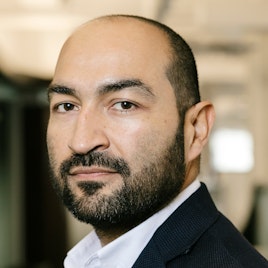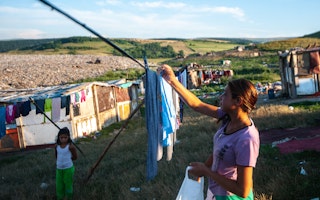Roma: From Participation to Power
By Zeljko Jovanovic
"When a people are mired in oppression, they realize deliverance only when they have accumulated the power to enforce change."
Dr. Martin Luther King’s words on how the oppressed can realize deliverance are as resonant today as they were when he wrote them in 1967. This concept of finding empowerment is a guiding principle for the Open Society Foundations' work on ending the oppression, violence, discrimination, and segregation of the Roma.
A recent blog post by George Soros on France’s expulsion of Roma and the need for the European Union to redirect a portion of its funds to help address the plight of Europe’s largest ethnic minority generated a similar sentiment from readers:
"Without including the most important stakeholder in the future of the Roma, the Roma people themselves, you cannot build a lasting solution."
"Voice of simple Roma people needed, it's not there in most NGOs."
"My question in all of this is: Where are the Roma leaders themselves? Is there no one amongst them who can come forward and help steer the Roma people forward? I agree, without input from the Roma people, policies don't stand a chance."
Their words touch at the heart of our work. Over the last ten years the rhetoric, if not the substance, of Roma participation has become a mantra for national, international, governmental and intergovernmental institutions. There remains, however, a gap and our challenge is to move beyond simply paying lip service to the notion of Roma participation.
It is not enough for the Roma to have a degree of institutional participation or to be the beneficiaries of organizations like our own. The Roma must become a recognized political constituency of rights-bearing citizens. We must accumulate political and civic power proportional to our numbers. Only then, will our voice be heard, only then will governments listen to our demands, and only then can we realize deliverance.
One way is to ensure that Roma are active citizens in European democracies—creating a political constituency that is force to reckoned with. In Serbia, the Open Society Foundations supported a project aimed at voter registration. The campaign resulted in more than 45,000 Roma registering for the elections of representative body called Roma National Council. View a short video about the campaign.
In order to stimulate informed electoral choice by Roma constituencies, the Open Society Foundations also supported public hearings before elections to the council. The hearings brought together Roma candidates to discuss the key problems to be tackled by their political platforms.
In a recent EU Observer article I called on policymakers to follow this example:
It is the promise of democracy that every person will be represented in decision-making. Only then can a person feel bound to respect and comply with the common rules that bind a polity. And it is only when Roma are represented and fully recognized as citizens that decisions concerning their lives will acquire legitimacy and relevance. Otherwise, top-down policy interventions—most egregiously manifested in the brute power of bulldozers leveling Roma households—will continue to corrode the notion of Roma as citizens.
Ideally, political parties should represent their constituencies, including Roma citizens. However, this has not been the case. Mainstream political parties provide extremely limited space for candidates of Roma origin and poorly represent the needs of Roma communities. The EU cannot sit around and wait for political parties to change. It must take action itself.
The European Union should find a model for stimulating Roma representation. Regulations on gender quotas could be adapted as a midterm solution for increased Roma elected representatives in the European and national parliaments. In the long term, the commission needs to include the concept of active citizenship in its future EU Roma policy. Provisions must be made to ensure every citizen of Roma origin is registered to vote, has access to the polls, and can make informed decisions.
In today’s democracies, the vote of every individual citizen, literate and illiterate, rich and poor, Roma and non-Roma alike should carry equal weight. Our social and political circumstances today are incomparably better than that of African Americans under slavery or black South Africans under apartheid. We are many, and however poor, illiterate, or oppressed we may be, we can wield power proportionate to our numbers. Power to make the future better for our children.

Until February 2024, Zeljko Jovanovic was director of the Roma Initiatives Office.


